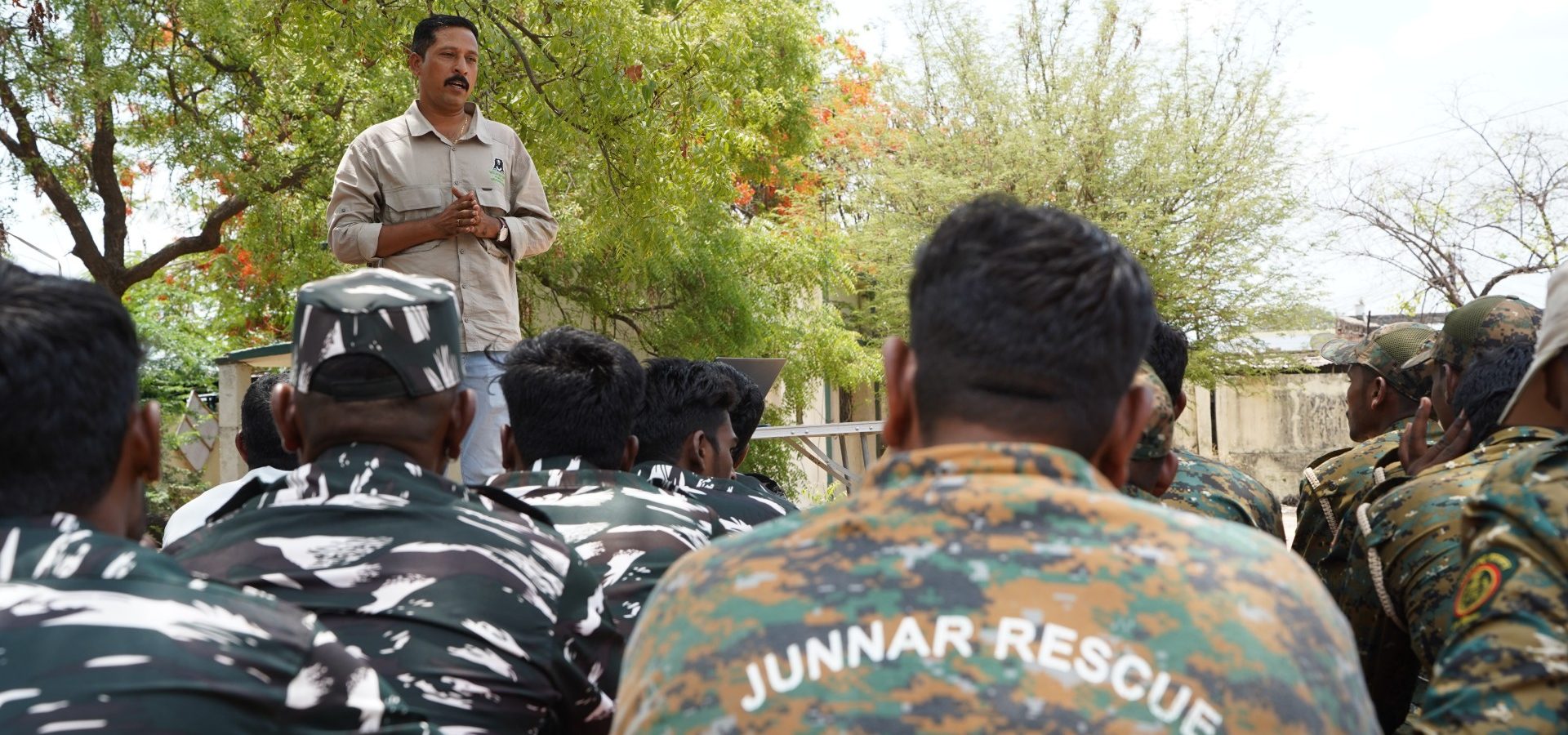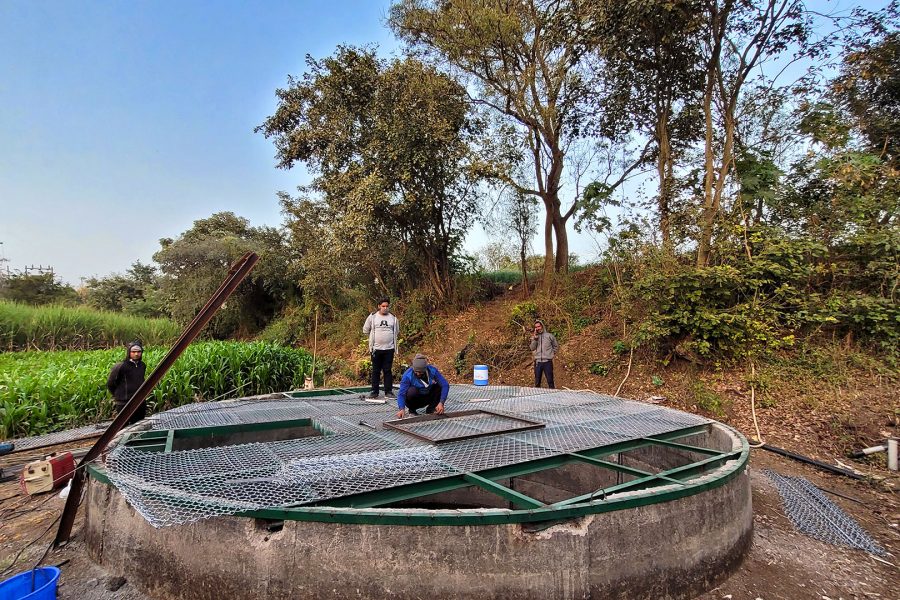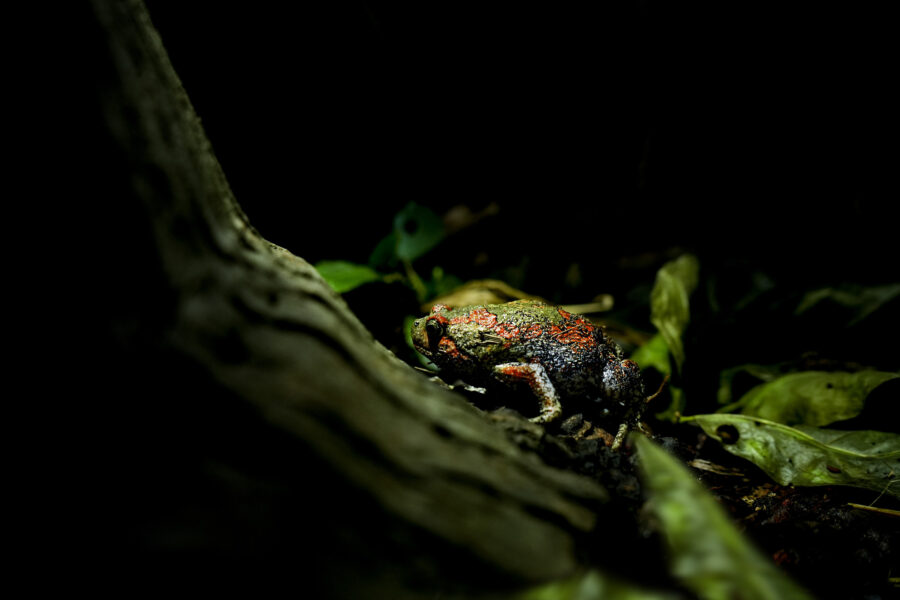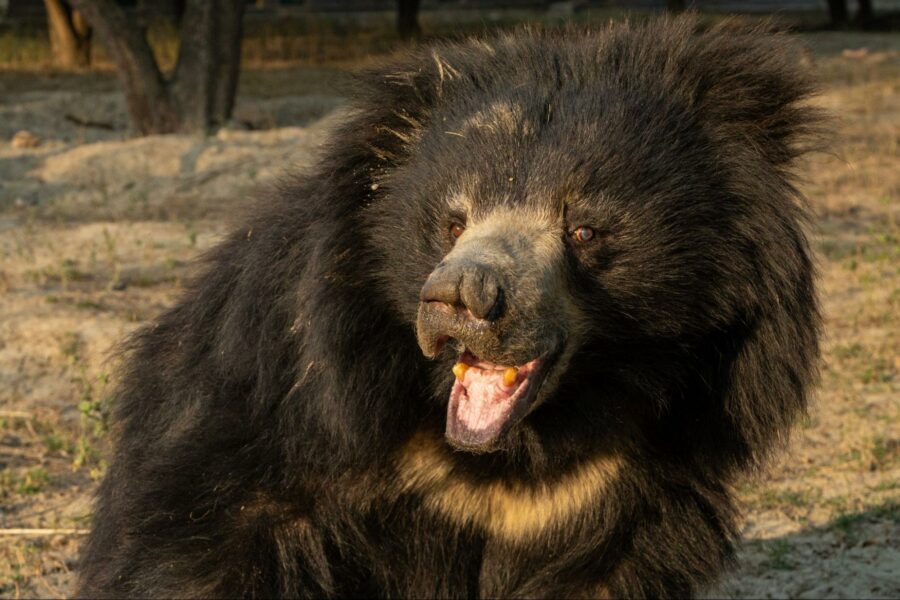Human-wildlife coexistence is an important issue that wildlife conservation touches upon. Understanding the behaviour of various species is a step needed towards mindful preservation of biodiversity. In this aspect, Wildlife SOS does not only work towards the rescue and rehabilitation of distressed animals, but also engages in various awareness and training programmes to apprise key stakeholders.
Events for World Environment Day
For World Environment Day on June 5, 2024, Wildlife SOS engaged in a series of events towards raising awareness about the importance of environment conservation. Right from Jammu & Kashmir in the north to Karnataka in the south, Wildlife SOS conducted various activities across multiple locations to observe the importance of the event.
Engaging Students and Stakeholders of J&K
To celebrate World Environment Day, Wildlife SOS in Jammu & Kashmir, led by Education Officer and Programme Head Ms. Aaliya Mir, orchestrated activities for students and community stakeholders from different ecological divisions of the state in the first week of June. Engaging young minds with conversations about Himalayan brown bear and Asiatic black bear was the highlight of an event organised on June 1 at the Dachigam National Park. A group of 150 students each from New Convent Higher Secondary School and New Era Public School in Srinagar learned about the local biodiversity of the region and their significance in the ecosystem. They heartily enjoyed a tour of the Dachigam Rescue Centre and acquired knowledge about the endemic bears we house here.
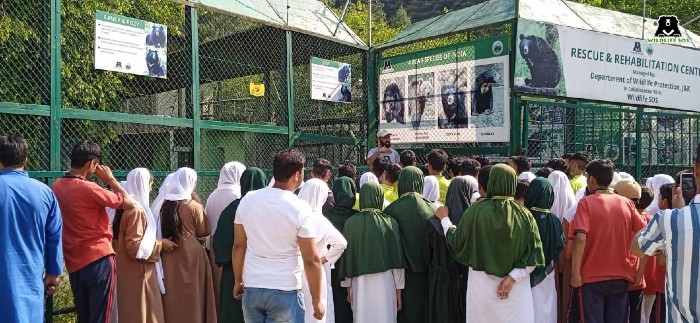
A second event on June 2 took the shape of a nature walk at Hirpora Wildlife Sanctuary. During this time, 70 students from Govt. Boys Higher Secondary School, Shopian gained a deeper understanding of why this day is celebrated, and interesting facts about the local flora and fauna were also shared with them.
Along with this, another session was organised on the same day at Hirpora Wildlife Sanctuary, the focus of which was to engage with nomadic herders like the Gujjars and Bakarwals at the Hirpora Wildlife Sanctuary in the Shopian division. Stressing on this year’s World Environment Day theme of ‘Land Restoration, Desertification and Drought Resilience’, the communities were informed about the consequences of unchecked livestock grazing at altitudes inhabited by wildlife species. The aim was to foster an understanding and partnership in allowing a space where both wildlife and nomadic communities can coexist sustainably.
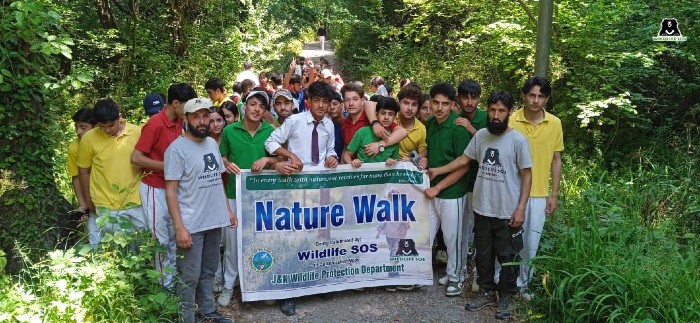
A camping session organised on June 3 at the Overa Aru Wildlife Sanctuary immersed 150 students from International Delhi Public School, Jammu, in experiential learning. Against the backdrop of the sanctuary’s serene surroundings, students engaged in discussions that addressed the ecological importance of Himalayan brown bears. Additionally, the session shed light on the pressing challenge posed by improper waste disposal in the area.
The series of events concluded with an awareness talk on June 4 with the students of the Government Degree College, Ganderbal. The discussions touched upon issues of waste management, wildlife protection, human-wildlife conflict and the need for effective solutions.
Talk on Human-Leopard Coexistence in Bangalore
Nestled in the outskirts of the city, close to the Bannerghatta National Park, Bangalore Steiner School is often visited by a familiar guest from the wild. An adult male leopard residing in the hillock adjacent to the school premises occasionally preys on local dogs in this vicinity for sustenance. Driven by an attempt to harmoniously coexist with the leopard, Wildlife SOS was invited to conduct an awareness session on World Environment Day. The session was attended by 35 staff members of the school. Led by Mr. Vinod Kantamneni, Wildlife SOS’s Manager – Education and Volunteer Programme, the session explored various themes concerning the ecology, current status, threats, and adaptability of leopards. Moreover, the attendees received valuable tips on how to stay safe in leopard territory. The session delved on how rapid human encroachment has contributed to loss of essential habitats for wildlife.
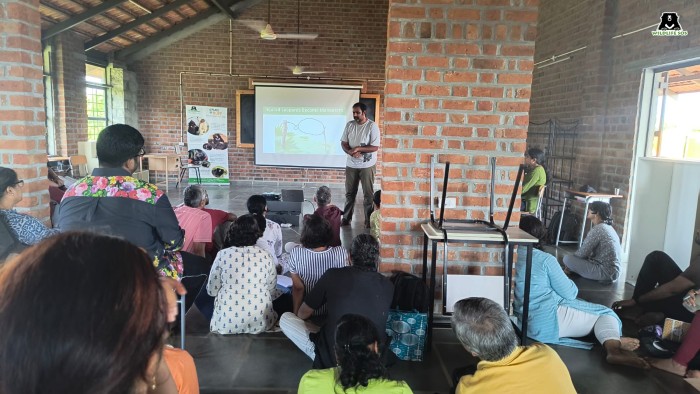
Cleanliness Drive at Soor Sarovar Bird Sanctuary, Agra
Wildlife SOS in collaboration with the Uttar Pradesh Forest Department conducted a cleanliness drive at the Soor Sarovar Bird Sanctuary, Agra for World Environment Day. Enthusiastic students from the Hindustan College of Science and Technology gathered early in the morning on June 4 in an effort to rid the sanctuary of non-degradable plastic pollutants and maintain the natural beauty of the place. A tour of Wildlife SOS’s Agra Bear Rescue Facility (ABRF) followed the clean-up initiative. Educational documentaries were shown to raise environmental awareness among the participants, and emphasise the need to protect and conserve the environment. The students gained eye opening perspectives on the use of plastic and its harmful effects on biodiversity. Our efforts culminated into the students solemnly taking an oath, pledging to refrain from using single use plastic.
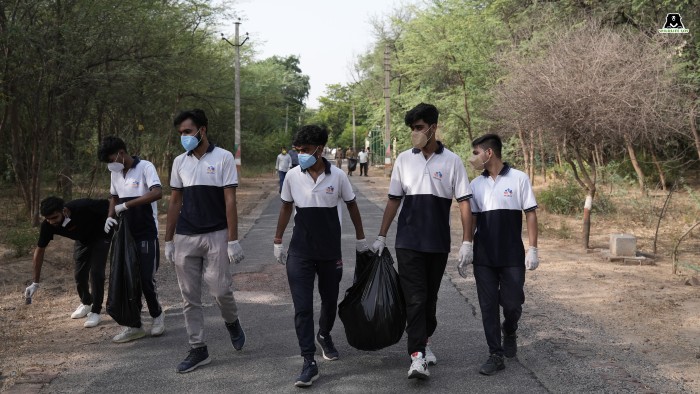
Awareness Talk at Mathura
For the occasion of World Environment Day, Wildlife SOS was invited to deliver an awareness talk to the students of Hindustan College of Science and Technology in Mathura. Mr. M V Baiju Raj, the Director of Conservation Projects and Dr. S Ilayaraja, the Deputy Director of Veterinary Services, addressed a wide array of topics concerning flora and fauna during the session. Along with themes of environment conservation and planting trees, the session raised awareness on how people can contribute towards mitigating climate change and maintaining balance in the ecosystem.
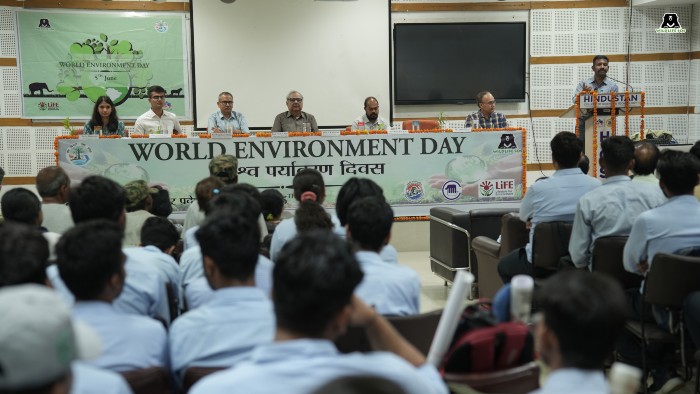
[Photo (c) Wildlife SOS/ Mradul Pathak]
Training Sessions with Forest Officials
Curtailing Human-Leopard Conflict with Junnar Forest Division
Wildlife SOS in collaboration with the Junnar Forest Division of Maharashtra conducted four different one-day training sessions with forest guards, foresters and rescue team members in four ranges — the Otur Range on May 30, Chakan Range on May 31, Manchar Range on June 3 and Shirur Range on June 4. The aim of these sessions was to address human-leopard conflict control in the respective areas. The seven forest ranges in the Junnar Division have recorded a frequency in leopard encounters when the big cats venture into human settlements that are close to forested areas, making these meetings highly pertinent.
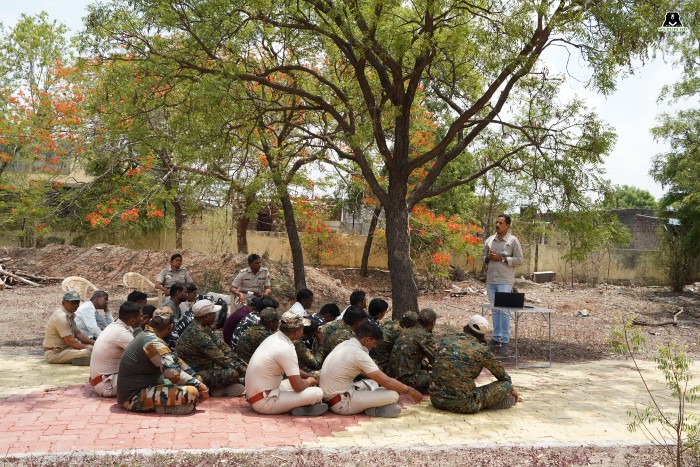
The training sessions were overseen by Mr. Mahendra Dhore, Wildlife SOS’s Project Manager at the Manikdoh Leopard Rescue Centre (MLRC) in Junnar near Pune. They provided valuable knowledge in conducting rescue operations in scenarios such as leopards being trapped inside open wells, or having faced injuries, or being found within human settlements. The forest officials were equipped with insights on different types of rescue techniques, methods and protocols to mitigate these recurring situations.
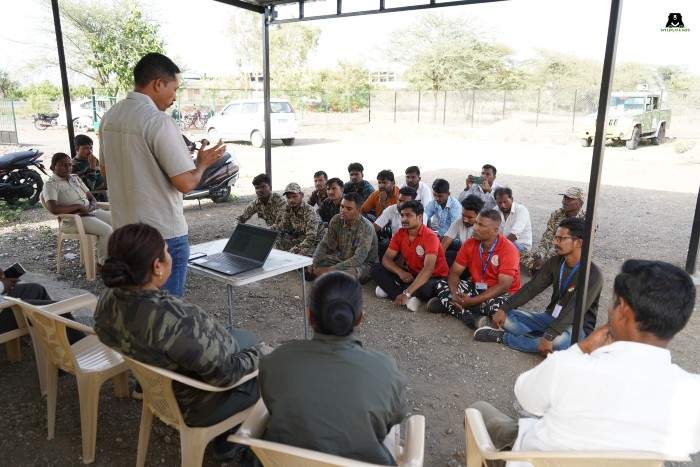
These collaborative training sessions with the Maharashtra Forest Department occur at regular intervals to keep the attending participants updated about recent developments in rescue techniques. These training programmes apprise the rescue teams with knowledge to execute careful and successful rescue operations. Moreover, they prepare the ground staff to conduct awareness campaigns in villages to bring down instances of human-animal conflict.
Wildlife Management Training for Chandigarh Forest Department
Wildlife SOS hosted a two-day training session on June 6 and 7 for the Chandigarh Forest Department. The forest officials were invited to the Manikdoh Leopard Rescue Centre (MLRC) for a training programme that focused on several aspects of human-animal conflict, wildlife management and the execution of wildlife rescue operations. Mr. Mahendra Dhore from Wildlife SOS organised the session to train a total of five forest officials. The programme included a detailed session on how to successfully use a tranquiliser gun and blow pipe in situations that would involve wildlife encounters. The main highlight of the session was exploring the correct methods to handle rescue equipment such as nets, cages and protective gear. Having understood the importance of having well-functioning rescue equipment, the officials were empowered with a renewed sense of determination.

MLRC Visit for New Recruits of Shahapur Training Centre
On June 14, a batch of new trainees from the Shahapur Training Centre of the Maharashtra Forest Department arrived at the Manikdoh Leopard Rescue Centre (MLRC). Wildlife SOS conducted a training session for the new forest guard and forester recruits. The session was spearheaded by Mr. Mahendra Dhore, the Project Manager at MLRC, and a cohort of 83 trainees gained detailed knowledge about leopard management, redressal of human-animal conflicts as well as wildlife rescue techniques and tips. During this bi-annual training session, they also got an opportunity to tour the centre and learn more about the resident leopards. By the end of the session, the participants had secured a holistic understanding of wildlife conservation and management.
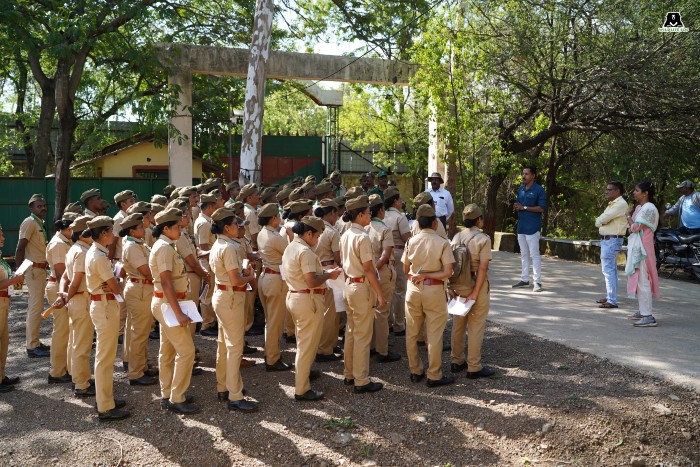
Whether it’s at your school, university, or workplace, Wildlife SOS invites you to connect with our team to help make a difference to protect our precious wildlife. Reach out to us at education@wildlifesos.org to organise an impactful awareness session at your institute!

